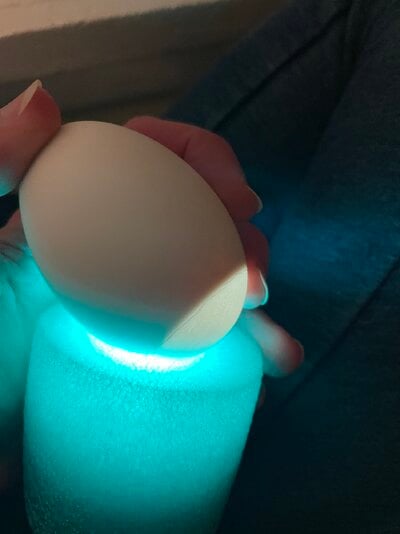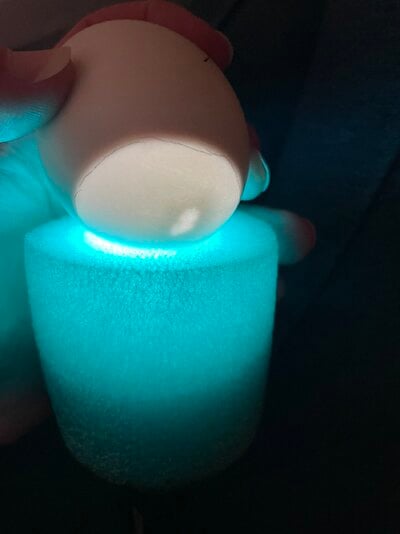MidwifeMamaHawk
In the Brooder
- Apr 17, 2024
- 38
- 24
- 23
Greetings Peeps! (see what I did there?)
I am wondering if some of you may have insight on the air sack size discrepancy between eggs for my current hatch. I am on day 21 of hatching 15 straight run chicken eggs from a friend with a backyard chicken flock.
I am using a Hova -Bator circulated air incubator. I have hand rotated the eggs at least five times a day, but horizontally, not end to end. I accidentally kept rotating them through day 19 but then stopped. I have hatched several sets of eggs in the past, but it has been several years since the last time I did, and since I looked up the proper humidity levels on a chicken feed website, I think my levels were higher than ideal. I kept it at 50%-60%. But it got opened 5-8 times/day so I hope that would reduce some impact of the high humidity levels. I also had all 3 ventilation holes open the entire time.
But the interesting thing here is that one of the eggs, a brown egg, has an air sac size that is absolutely PERFECT! I candled it last night, and I saw the chick trying to pip through the internal membrane. Two small brown eggs have no discernible air sac, and the remaining white eggs all have a very small air sacks. If I ran it at too high of humidity for the eggs, how could I get one egg where the air sac is perfect?
(I am going to post this now, and then will reply to myself with the pictures since I am having trouble posting pictures with this and I don’t want to have to retype it all for the third time!)
Thank you!
I am wondering if some of you may have insight on the air sack size discrepancy between eggs for my current hatch. I am on day 21 of hatching 15 straight run chicken eggs from a friend with a backyard chicken flock.
I am using a Hova -Bator circulated air incubator. I have hand rotated the eggs at least five times a day, but horizontally, not end to end. I accidentally kept rotating them through day 19 but then stopped. I have hatched several sets of eggs in the past, but it has been several years since the last time I did, and since I looked up the proper humidity levels on a chicken feed website, I think my levels were higher than ideal. I kept it at 50%-60%. But it got opened 5-8 times/day so I hope that would reduce some impact of the high humidity levels. I also had all 3 ventilation holes open the entire time.
But the interesting thing here is that one of the eggs, a brown egg, has an air sac size that is absolutely PERFECT! I candled it last night, and I saw the chick trying to pip through the internal membrane. Two small brown eggs have no discernible air sac, and the remaining white eggs all have a very small air sacks. If I ran it at too high of humidity for the eggs, how could I get one egg where the air sac is perfect?
(I am going to post this now, and then will reply to myself with the pictures since I am having trouble posting pictures with this and I don’t want to have to retype it all for the third time!)
Thank you!





